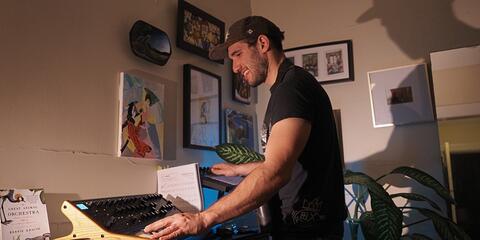Join 2022 Environmental Humanities grant recipient Diego Ellis Soto for this special event!
The evolution of beauty in nature knows no end. Animals and ecosystems provide a unique unison of sounds and silence that is awe-inspiring to humans. The movement of these joint players often appear very symmetrical and soothing to the eye. The harmonic movement of bird swarms often has a gentle tact and these synchronous players often appear to be almost dancing in unison. We could even imagine that they are dancing to some music or rules that we as humans may not be perceiving. Yet, at the same time, the sound of the natural world is increasingly shaped by the timber of the drums of human activities and actions across the world. Under current times, with the ongoing climate crisis and species extinction loss, we risk losing the unique sounds, arts and collective generated by animals from schooling of fish, to flocking of birds, to millions of insects. Taking this a few steps further, one could even assume that collective behavior and musical theory may share some commonalities in how musical chords and animals in a flock move synchronously together in accord. With increasing technological advancements in artificial intelligence and small hardware sensors we are able to have a bird’s eye view of this incredible natural world. In this art exhibit and project, we ask you to fasten your seatbelt as we take a dive into musical theory, music production, ecology, deep learning, and animal behavior to link the biological principles of animal behavior with musical theory. What do animal interactions and collective patterns have in common with dynamic musical shifts in human operas? How has the ongoing COVID-19 pandemic affected the soundscape of entire ecosystems and animals? How is ‘noise’ in animal groups beneficial? Why is an animal warm more like monopoly while milling animals make sounds of polyphony? Come take the plunge with us as a Collective Pulse!
Click here for more information and registration.
